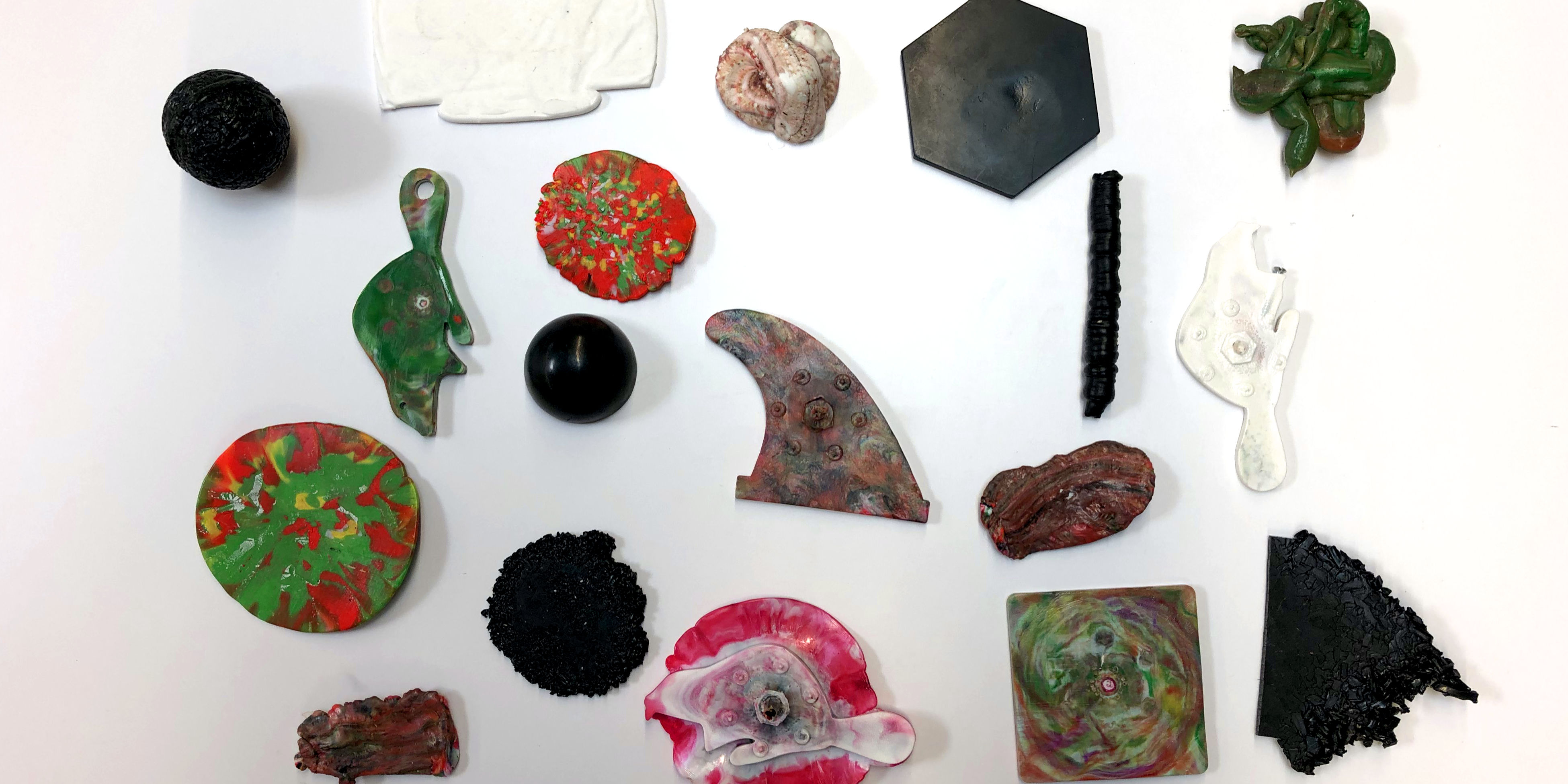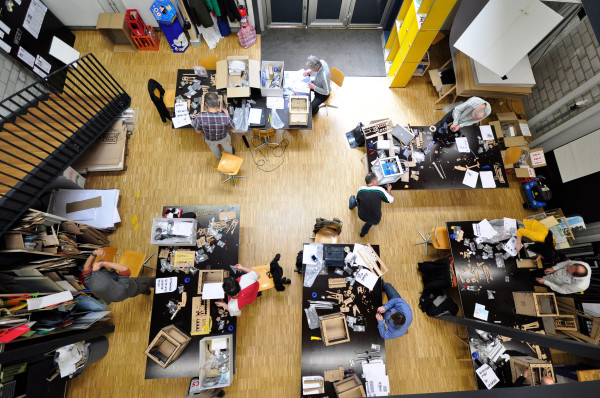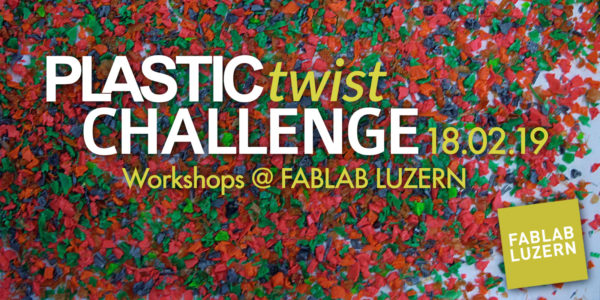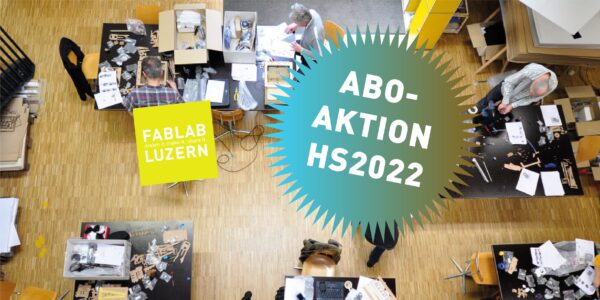English version is located below
Versetzen wir uns mal gedanklich in die Zeit, als die Single «ça plaine pour moi» von Platic Bertrand herauskommt. Kunststoff wird zum Lifestyle erklärt und beschreibt das Lebensgefühl einer ganzen Generation: das Material ist neu, vermittelt Unabhängigkeit, Produkte werden viel günstiger (wegen der Spritzguss-Technik) und schnell Verfügbar, alles wird bunt/farbig/glänzend, alles scheint möglich, der Aufbruch in die Konsumgesellschaft…
Quelle: Youtube Video Link: https://www.youtube.com/watch?v=VBnT1DVYCqk
Schon in den 70er Jahren machen sich die ersten Gedanken über die Zukunftsfolgen des eskalierenden Kunststoff-Konsums. Heute, 50 Jahre nach der Einführung von Kunststoff, ist «Plastik» zu einem globalen Problem angewachsen und buchstäblich in aller Munde – und im Meer, in der Erde und in Nahrungsmittel. Und damit nicht genug: jährlich produziert die Industrie unvorstellbar grosse Mengen an neuem Kunststoff. Ein Ende ist im Moment nicht in Sicht!
Klar, ganz ohne Kunststoff, wären wir nicht da, wo wir heute sind (wahrscheinlich wieder in der Steinzeit)! Kunststoff ist ein fantastischer und unersetzbarer Werkstoff für Produkte und Konsumgüter des täglichen Lebens: Food- und Verpackungs-Industrie, Medizinaltechnik, Lacke und Farben, Kosmetik, Elektrizität, Computer, … Wir müssen unseren Kunststoff-Konsum radikal überdenken und für uns neu formulieren. Alle gehören an diesen Tisch: die Industrie, Produzenten, Hersteller wie auch wir Konsumenten*innen.
Workshops als «Offene Experimentierplattform»
Im FabLab veranstalten wir regelmässige Workshops zum Thema Kunststoff und Recycling. Wir vermitteln den Teilnehmenden Basiswissen zu den verschiedenen Kunststoffsorten und sprechen über das Sammeln und Reinigen von Kunststoff. Unser «Plastik Wolf» (Shredder) sowie unser «Injections-Mould» (Spritzguss-Maschine) kommet dabei auch zum Einsatz. Wir zeigen euch, wie man aus Kunststoff-Abfall neue Design-/Kunst-Objekte herstellen kann.
Sucht mit uns gemeinsam nach Lösungen für einen nachhaltigen Umgang mit Kunststoff – hast du eine Idee für ein Design-Objekt oder ein Kunst-Projekt? Wir sind gespannt darauf! In den Workshops:
- teilen wir Visionen und Wissen
- träumen wir Utopien
- schliessen wir Allianzen
- und schmieden Pläne für die Zukunft
ça plaine pour nous (uns ist es klar), dass wir jetzt handeln müssen!
KURSDATEN
- Mi. 08.05.19 – 13 bis 17 Uhr
- Mi. 22.05.19 – 13 bis 17 Uhr
- Mi. 05.06.19 – 13 bis 17 Uhr
- Mi. 19.06.19 – 13 bis 17 Uhr
- Mi. 03.07.19 – 13 bis 17 Uhr
ABSCHLUSS MIT AUSSTELLUNG
Am Schluss dieser Workshop-Serie möchten wir unsere «Resultate» einen Publikum präsentieren und Veranstalten im Spätsommer/Herbst eine Kunst- & Design-Vernissage in einem öffentlichen Rahmen. Das genaue Datum und der Ort sind noch offen.
PlasticFantastic ist Teil vom EU Horizon 2020 Forschungsprojekt PlasticTwist. Das interdisziplinäre und international aufgestellte Forschungsteam, mit Beteiligung der Hochschule Luzern, wird mit verschiedenen Massnahmen das Bewusstsein in der Gesellschaft steigern, damit Plastik (wieder) als wertvolle Ressource wahrgenommen wird. Die Forschenden hinterfragen etablierte Recycling-Praktiken, forschen an nachhaltigen Innovationen und fördern zirkuläre Wirtschaftspraktiken.

PLASTIC-FANTASTIC
Let’s imagine the time when the single „ça plaine pour moi“ by Platic Bertrand comes out. Plastic is declared a lifestyle and describes the lifestyle of an entire generation: the material is new, conveys independence, products become much cheaper (because of the injection moulding technique) and quickly available, everything becomes colourful/coloured/glossy, everything seems possible, the departure into consumer society…
Already in the 70s, the first thoughts about the future consequences of the escalating consumption of plastics were being made. Today, 50 years after the introduction of plastic, „plastic“ has become a global problem and literally on everyone’s lips – and in the sea, in the earth and in food. And that’s not all: the industry produces unimaginably large quantities of new plastic every year. An end is not in sight at the moment!
Of course, without plastic we wouldn’t be where we are today (probably back in the Stone Age)! Plastic is a fantastic and irreplaceable material for products and consumer goods in everyday life: food and packaging industry, medical technology, paints and varnishes, cosmetics, electricity, computers, … We have to radically rethink our plastics consumption and reformulate it for ourselves. Everyone belongs at this table: industry, producers, manufacturers and consumers*.
WORKSHOPS AS AN OPEN PLATFORM FOR EXPERIMENTATION
In the FabLab we organise regular workshops on plastics and recycling. We teach the participants basic knowledge about the different types of plastics and talk about collecting and cleaning plastics. Our „Plastic Wolf“ (shredder) and our „Injection Mould“ (injection moulding machine) are also used. We will show you how to produce new design/art objects from plastic waste.
Join us in looking for solutions for a sustainable use of plastic – do you have an idea for a design object or an art project? We are looking forward to it! In the workshops:
- we share visions and knowledge
- we dream utopias
- we forge alliances
- and make plans for the future.
ça plaine pour nous (we know) that we must act now!
COURSE DATA
- Wed. 08.05.19 – 13 to 17 o’clock
- Wed. 22.05.19 – 13 to 17 o’clock
- Wed. 05.06.19 – 13 to 17 o’clock
- Wed. 19.06.19 – 13 to 17 o’clock
- Wed. 03.07.19 – 13 to 17 o’clock
CONCLUSION WITH EXHIBITION
At the end of this workshop series we would like to present our „results“ to an audience and organize an art & design vernissage in a public setting in late summer/autumn. The exact date and location are still open.
PlasticFantastic is part of the EU Horizon 2020 research project PlasticTwist. The interdisciplinary and internationally positioned research team, with the participation of the Lucerne University of Applied Sciences and Arts, will use various measures to raise awareness in society so that plastic is (again) perceived as a valuable resource. The researchers will question established recycling practices, research sustainable innovations and promote circular economic practices.





